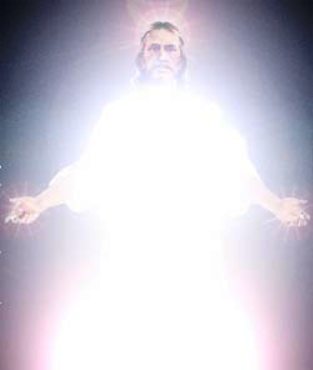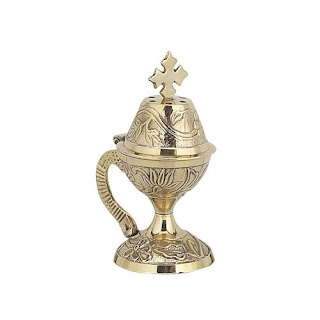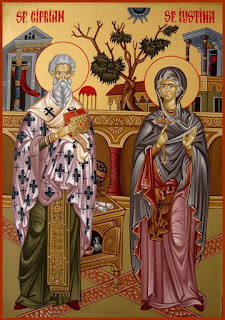I do want to talk about Kairos more sometime when I can think more about it. Just a quick thought, stealing more from Standing at the Corner of East and Now from Frederica Mathewes-Green:
Between the songs the lead singer urges listeners not to
let the joy of the faith grow cold in their hearts. I hear several
bands give messages like this between songs, which makes me
wonder if cooling emotion is a recurrent problem. It doesn’t
seem to be a concern that listeners will actually lose their faith,
but rather that they’ll fail to experience a sufficiently vivid level
of emotional engagement with it, that they may gradually grow
numb or take it for granted.
A liturgical church has an advantage over one where worship
is relatively spontaneous, in that people powered by religious
emotion simply do run out of steam. Where there is a
liturgy you show up each week and merge into that stream, and
allow the prayers to shape you. But where the test of successful
worship is how much you felt moved, there’s always performance
anxiety; even the audience has to perform.
I had been a Christian about ten years when I noticed to my
dismay that my spiritual feelings were changing; the experience
was growing quieter, less exciting. I feared that I was losing my
faith, or that I might hear the Lord’s words to the church at
Ephesus, “I have this against you, that you have left your first
love” (Revelation 2:4). Then I came to sense that my faith had
undergone a shift of location. It had moved deep inside, and
was glowing there like a little oil lamp; if I were swept away with
emotionally noisy worship, it might tip and sputter. Silence and
attentiveness were now key.
I think this happens naturally in a believer’s relationship
with God, just as it does between two people who are in love. At
first being in love is all so strange, and the beloved is so other
and exciting, that every moment is a thrill. But gradually over
long years the couple grows together and grows alike. They no
longer find each other a thrilling unknown, but drink deeply of
a treasured known that will always extend to mystery. At the beginning,
the heart pounds just to see the beloved’s handwriting
on an envelope; at the end, two sit side-by-side before a fire and
don’t need to speak at all. When these rock bands urge their
audience not to let the joy fade, they may be calling them to
fight a fruitless battle against moving to the next stage of spiritual
communion, the one where God moves deep inside. When
years shape us to be like Him, His presence is less electric and
strange; yet as we draw nearer, deeper faith yields deeper awe.
One of the most salient sentences of that passage for me, and this has to do with Kairos is this: "A liturgical church has an advantage over one where worship
is relatively spontaneous, in that people powered by religious
emotion simply do run out of steam. Where there is a
liturgy you show up each week and merge into that stream, and
allow the prayers to shape you."
We are merging into a stream that has existed, continues to exist, and will exist.
In the French language, there is a verb tense that we don't really have an equivalent for in English: The present perfect continuous tense.
Let's say I am sitting on a bus, and someone calls me and asks me what I am doing. I would use the present perfect continuous tense in French to describe what I was doing: I am currently sitting on the bus, I have been sitting on the bus, and I will continue to sit on the bus for an indeterminant length of time.
They have one verb tense that conveys all of that at once.
Kairos is like that with regard to the spiritual life: I am praying. I have been praying. And I will continue praying indefinitely. When we enter liturgical worship with priests and prayers who have been passing down traditions for 2 thousand years, we are entering a kind of space that defies normal time. It's sacred time. This is also true of Jews all over the world who are covering their eyes and praying before candles at the start of Shabbat. It's been going on for centuries, and when we continue it today, we are participating in something sacred, something larger and beyond ourselves.
But even more than that: We are entering a stream of worship that is constantly ongoing in Heaven. And Heaven is very real, and all around us-- we are surrounded by Saints and Angels worshipping God. So, often during worship services, it is easy to feel transported into another realm, one in which the worship is eternal, and one that we will someday join permanently. This is Kairos: Getting to experience this now.
Last night Darren and I were talking, and he said, "I feel like I am always doing it wrong at church."
And it took me a minute, but I realized he feels this way because he is always being told that he's doing it wrong. This is true-- but I don't think the priest means it the way Darren interprets it, which is more worldly: "You can't do anything right, you'll never get it right, so why bother?"
The way the priest intends it is more like this:
If we are standing in a dark room, we don't really notice the darkness of our own souls. We don't recognize our own sinful nature, because we are accustomed to darkness, so we blend in. We don't seem that bad compared to our surroundings.
If someone lights a candle, we can see a little bit, so we can compare our own darkness to that little bit of light, but it's still not so bad.

Now, let's say that any poximity to light, even a candle, represents our own metanoia, our own turning toward Christ, however small that turn may be. And so, our turning represents repentance, and a cleansing of our souls, and as we repent, we receive more and more access to Christ's light.

Now, we are in a fully lit room. And we are in this lit room because we have been turning toward Christ and trying to keep our focus on him, we have realized that some of the things we do and think make us dark, and we crave the light, so we try to change our actions and thoughts to keep us in the light. But at the same time, that light reveals us starkly. So, at the same time that we are becoming more holy, more able to stand in the light, we may actually FEEL less worthy to stand in it than we did when we were fully engulfed in the darkness and had no light to compare ourselves to.

Continue this analogy until you're standing in the noonday sun,
or perhaps a spotlight on a stage. Father Paul tells us that the more we empty out the concrete and dirt of our hearts, the more room we have for the living water of Christ. But what happens when you add water to dirt? Even a little bit of dirt? You have mud.

So, the more holy we become, the more light we're present for and the greater the light we are comparing ourselves to. So, even though maybe we are far holier and more righteous than we were when we first started, in comparison to the brightness we now see, we feel dark.
This is what it means to say, in Orthodoxy, that we are doing it wrong: We are in a fallen state. We will never quite get to merge with the light in the way that we want. But we will get closer and closer to it. But this is why the holiest of saints and the most humble of monks consider themselves the worst among sinners: They have received the most grace, they have the most knowledge of the light, so they, more than any of us, know how far they have to go. And of course, they are going to feel that they are failing miserably. However, the rest of us are comparing our darkness to that of the saints and monks and thinking, "They're insane to say that they are chief among sinners." And from our perspective it seems that way-- but when we are where they are, we will understand. Just as those of us who have seen glimmers of candle light can tell those who are completely in the dark that they are actually in darkness-- their eyes have just adjusted to the darkness, so they don't fully realize it. Without Christ, they have nothing to compare it to.














